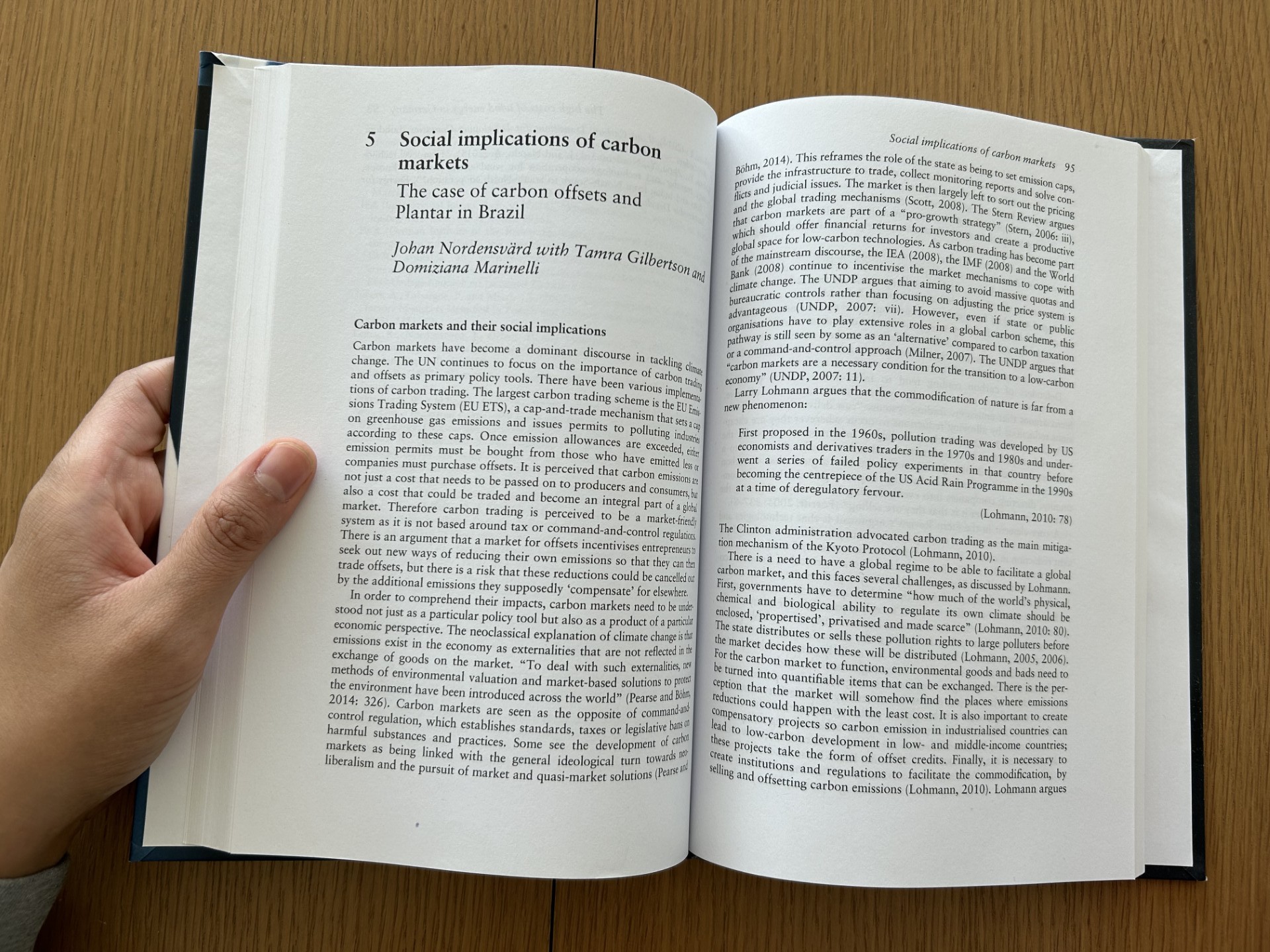Carbon Market Illusions: What I Discovered Studying Brazil's Carbon Markets
In 2014, as a student from Italy and Guadeloupe at the University of São Paulo, I began what I thought was a straightforward research project on EU-Brazil green technology transfer. What I uncovered instead was a troubling paradox in modern environmental policy.
Brazil was emerging as a regional superpower, attracting international investment and environmental projects. European companies were eager to participate in what seemed perfect: paying for forest projects in Brazil to offset their carbon emissions back home.
I had the extraordinary privilege of working alongside leading climate policy experts Tamra Gilbertson and Johan Nordensvard as we investigated the Grupo Plantar case in Minas Gerais. On paper, it was perfect: a massive reforestation initiative capturing carbon while creating local jobs. But the documented reality was different.
Our evidence revealed water sources contaminated by intensive pesticide use. Labour office reports detailed unregistered workers and hazardous conditions. Most disturbing were records of systematic intimidation against community members who spoke out.
This happened under the Clean Development Mechanism, created under the Kyoto Protocol. It allowed companies in wealthy nations to buy their way out of emissions reductions by funding environmental projects in developing countries.
Our research documented clear patterns. Monoculture plantations replaced diverse ecosystems. Traditional communities lost access to their lands. Workers faced exposure to dangerous chemicals. Each problem was meticulously recorded by government agencies, academic researchers, and labour inspectors.
The carbon market system itself made these problems inevitable. Companies didn't break the rules, they followed them exactly as written. The rules themselves were the problem.
Eight years later, these lessons are more relevant than ever. As we face accelerating climate change, the temptation to reach for simple market solutions grows stronger. But our documented findings in Brazil warn us against this path.
The research shows that real climate solutions must protect both ecosystems and communities. They must recognize that environmental justice and social justice are inseparable. This isn't just an academic conclusion - it's a practical lesson learned from years of documented evidence. The question isn't whether market-based climate solutions can work better - it's whether they can work at all.
